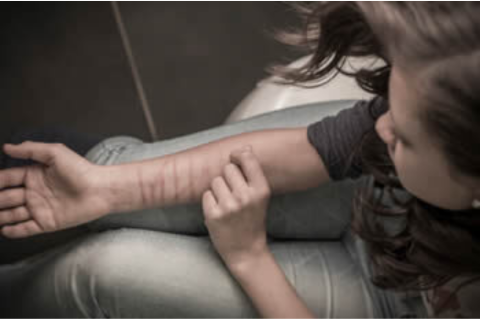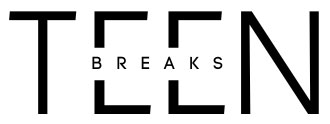
Self Cutting and Abortion
When British TV star Gemma Collins spoke earlier this year about the abortion she had when she was in her 20s, she also admitted to the tremendous guilt she felt and the fact that she resorted to self-harm, which included cutting and binge eating. This brought the reality of the abortion cutting connection further into the light.
Collins, now 32, is still tormented by the guilt over her abortion several years ago and even questions whether her recent miscarriage was God’s punishment for the abortion.
Stories from teens and young adults continue to verify their own feelings of guilt and depression following abortions and their attempts to deal with it all through various types of self-harm, including cutting.
Although there are potential physical complications in having an abortion, the psychological complications are much more prevalent. These complications are many and varied, including:
Cutting and self-mutilation
Eating disorders and food addictions
Overwhelmingly sad moods and uncontrolled crying
Inability to sleep and dreams of the aborted baby
Drug and alcohol abuse
Wanting a replacement pregnancy
Inability to be around babies, baby articles, and pregnant women
Feelings of guilt, anxiety, and depression
Loss of self-respect
Relationship problems
Feelings of anger and isolation
Thoughts of suicide
About 20% of abortions performed in the United States are on teens, and they are especially susceptible to these psychological complications for two reasons. First of all, they are most often influenced into having an abortion by their families or their boyfriends. They often give in to the pressure to make everyone else happy. They are frequently threatened by their parents that they will be kicked out of the house or convinced that they have no say in the abortion. They are also coerced by boyfriends, who are often older, that the relationship will end if they don’t abort. Their guilt is especially powerful when they don’t want the abortion themselves and really want to keep their babies. Even if they choose to have the abortion themselves, after the initial relief made possible by the abortion to no longer be pregnant with all the problems it entails, post-abortion guilt can still set in within a matter of hours or days.
The second reason for their susceptibility to psychological post-abortion complications is their lack of maturity and experience in dealing with difficult problems. Without coping skills, they turn to unhealthy ways to contend with their feelings. Their youth, therefore, compounds the problems created by abortion. Since self-cutting is already prevalent among teens dealing with all kinds of issues, it fits the bill for teens dealing with an abortion. It can become their personal punishment for the guilt they feel in killing their baby, and it is also their coping mechanism to numb their pain. Cutting puts the post-abortive teen back in control, expresses her anger, and releases her anxieties.
Cutting becomes very addictive, and the only way to stop the cutting is to address the underlying problem that started the addiction in the first place. Since the girl is not receiving help for her post-abortion feelings, the cutting continues unabated. This, of course, does nothing to solve her problem and can generate many other problems as well. If her friends discover her cutting addiction, she can be ostracized by her peers. Then there are the physical dangers constantly present. The cuts can become infected. The scars can be permanent. She can cut too deep, resulting in serious blood loss and putting her in grave danger.
It is estimated that 1 in 20 girls have cut themselves and 1% of the population in the United States are self-harming, while 3 million have a serious cutting problem. Even celebrities like Johnny Depp and Angelena Jolie have histories of cutting, and scars have been seen recently on the arms of Miley Cyrus. It was also well known that Princess Diana was heavily addicted to cutting.
Of course, there is help available to both girls who are suffering from post-abortion problems and anyone who is addicted to cutting, but the victims of abortion and cutting seldom seek help themselves. Cutters are very secretive about their addiction and cover it up with long sleeves and clothing that doesn’t reveal their secret. This makes it very important for their families and friends to be aware of unusual behavior and to follow up on any concerns they might have. Even the celebrity cutters kept their secrets for several years before revealing their addictions.
Anyone dealing with post-abortion and cutting only needs to Google these issues to find multiple sites and organizations offering free and confidential help and counseling. Most people have no idea how addictive cutting is, and it’s not an addiction that can be easily stopped without counseling and discovering what the underlying problems really are. Abortion and cutting need to come out of the secret darkness and into the light of day.
